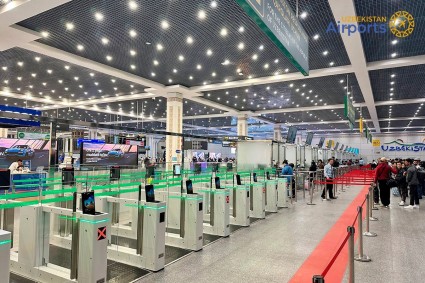The United Nations Development Programme, together with the Anti-Corruption Agency, the Anti-Corruption and Civil Rights Commission of the Republic of Korea, the UNDP Seoul Policy Center and the EU, conducted a survey in Uzbekistan aimed at assessing the willingness of society to report corruption.
The survey involved 503 respondents from 14 provinces of Uzbekistan.
According to the results of the survey, respondents mainly understand corruption as bribery and nepotism. More than 50% of respondents consider abuse of office and nepotism to be manifestations of corruption, while only less than 40% associate it with giving expensive gifts. Most people do not consider gifts to be corruption, perceiving them as a sign of gratitude.
Taking bribes (88.4%) and giving bribes (68.4%) are condemned by the majority, but small gifts for quality service are perceived as a norm. 22.4% of respondents do not condemn the fact of giving a bribe if it was forced.
Women are more likely to show leniency towards those who give bribes, while men are more likely to show leniency towards those who receive them.
Respondents named healthcare (56.4%), education (especially higher education - 39%) and amyor and governor offices (25.6%) as the most corrupt areas.
The areas most affected by corruption were road safety (27.2% of men, 18.4% of women), law enforcement (26.8% of men, 18.8% of women), highways (21.6% of men, 12.8% of women) and the construction industry (23.6% of men, 13.2% of women).
Rural residents more often than city residents named highways as the most corrupt area - 22.2% and 12.8%, respectively.
Only a few of those who witnessed corruption cases reported them to anti-corruption agencies. 74.8% of respondents are ready to report cases of corruption, including 82.2% who are ready to use electronic platforms or mobile applications for this. 12% of respondents believe that reporting corruption is bad.
The willingness to report corruption is slightly higher among men (79.2%) compared to women (70.4%). At the same time, women (85.2%) showed greater willingness to use a portal or mobile application to report corruption.
The main reason why people do not report corruption is the fear of negative consequences for themselves - 48.6%. Among other reasons, people consider it useless and do not believe that anyone will pay attention to it (24.8%).
Another 20.4% do not know where to turn, 19.8% receive personal benefits from corruption (19.8%).
13.8% noted that they give money and gifts voluntarily as a sign of gratitude, and 7.4% do not know that this is an illegal act.
Respondents believe that such concepts as "suyunchi" (reward), "toyona" (wedding gift), "rahmat" (gratitude) are purely voluntary and are a manifestation of respect and support. People note that they "give them from the heart" to help overcome difficulties.
"For example, if you need to pay a fine of 10 million soums, and you agreed with the inspector and paid 2 million soums. Where is 10 million soums and where is 2 million soums, think about it," answered one of the respondents from Tashkent.
64% of respondents trust the bodies involved in the fight against corruption, 28% do not trust, 8% found it difficult to answer.
The trust of city residents in the media (20.3% versus 13.7% among rural residents) and bloggers (17.3% versus 14.1%) is slightly higher in terms of the fight against corruption.
Rural residents are more likely to trust the Anti-Corruption Agency (21.4% versus 15% among urban residents).
People with disabilities include the Anti-Corruption Agency, the media, and bloggers among the entities they trust most in the fight against corruption.
Less than 5% of respondents said they do not trust anyone.
Local institutions such as mayor’s and mahalla offices were named the least reliable institutions.
The authors of the survey recommended eliminating the conditions that cause fear of reporting cases of corruption. In particular, it is proposed to:
- Eliminate gaps in legislation that prevent anonymous reports from being accepted for processing, and ensure the confidentiality of people reporting corruption;
- Expand digital public reporting mechanisms;
- Increase legal literacy and public awareness of the negative consequences of corruption by explaining its harm. Stop the spread of public opinion that corruption is beneficial to both parties.
- Establishment of an online portal for reporting corruption using an intuitive interface, guarantees of confidentiality and security, feedback, reference information. Participation in its work of the government, as well as the media and digital channels. In addition, it is recommended to increase the responsibility of government agencies in the fight against corruption and strengthen the immunity of civil servants.
In addition, it is recommended to increase the accountability of government agencies in the fight against corruption and strengthen the immunity of civil servants.
As noted in the survey, it is also necessary to increase the transparency of judicial processes, introduce a system of monitoring and controlling corruption in key ministries, ensure transparency in the decision-making process, financial transactions and procurement.
Among other recommendations are the creation of channels for reporting corruption accessible to various groups of the population, support for civil society as an intermediary between citizens and law enforcement agencies in investigating corruption cases, improve the process of reviewing reports of corruption, and protect whistleblowers.














